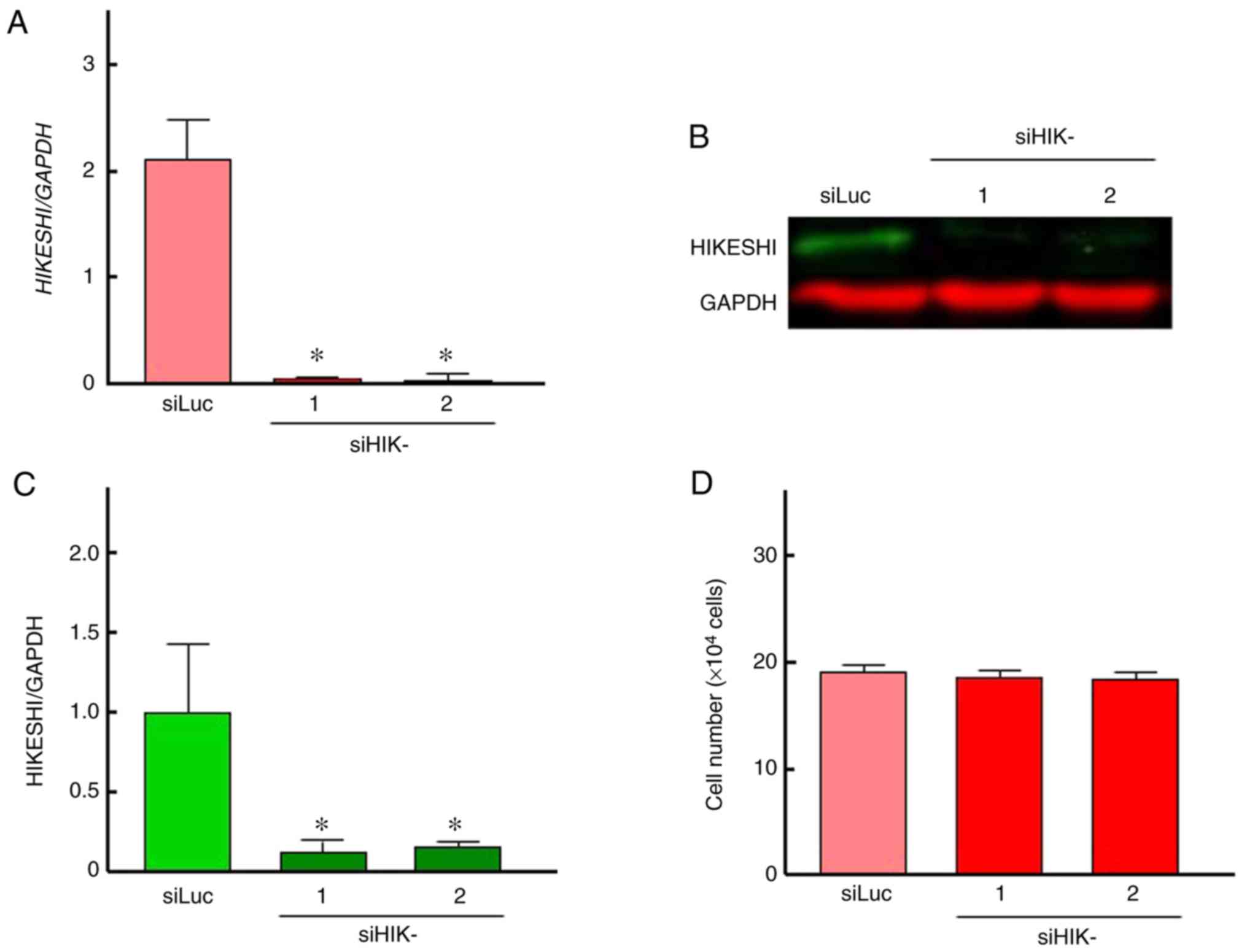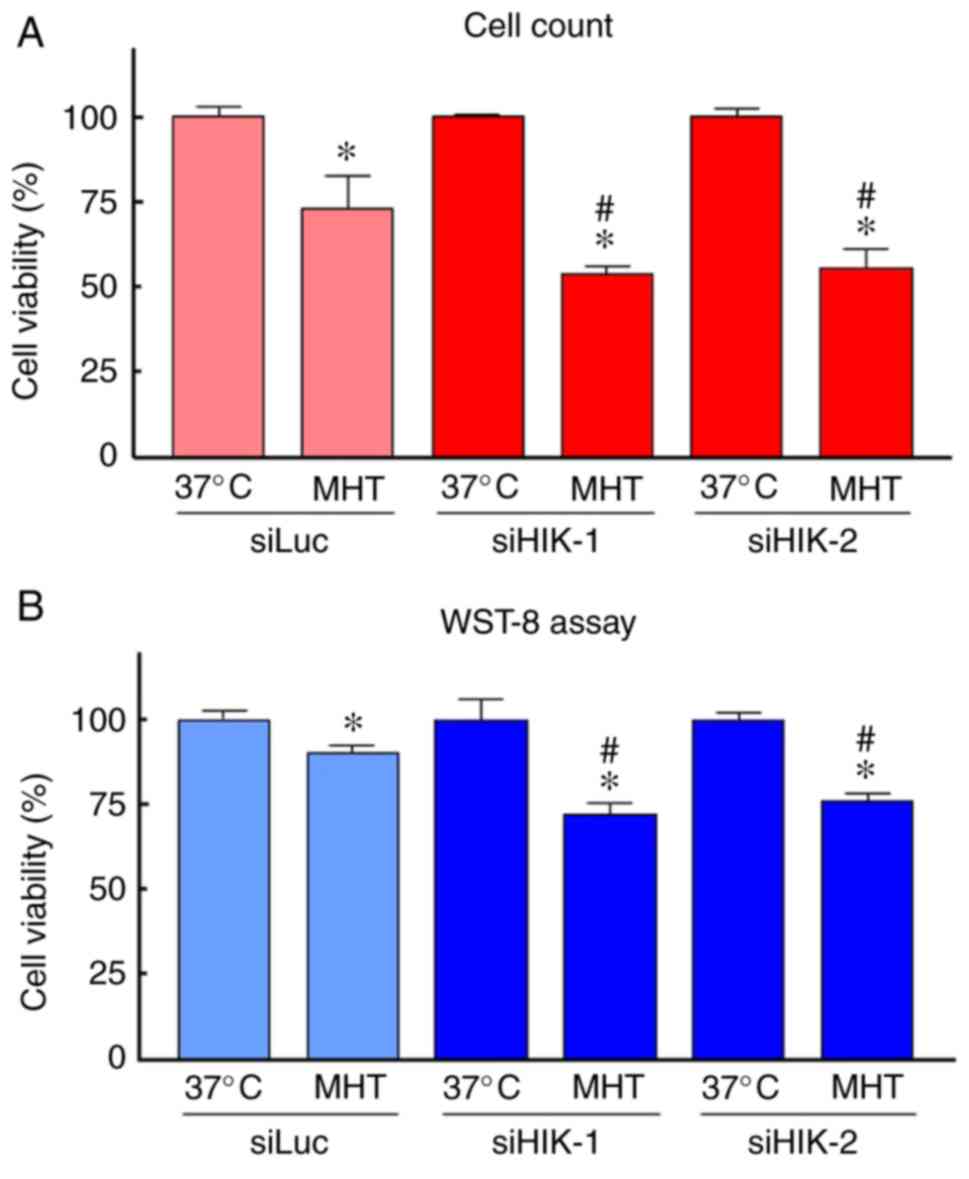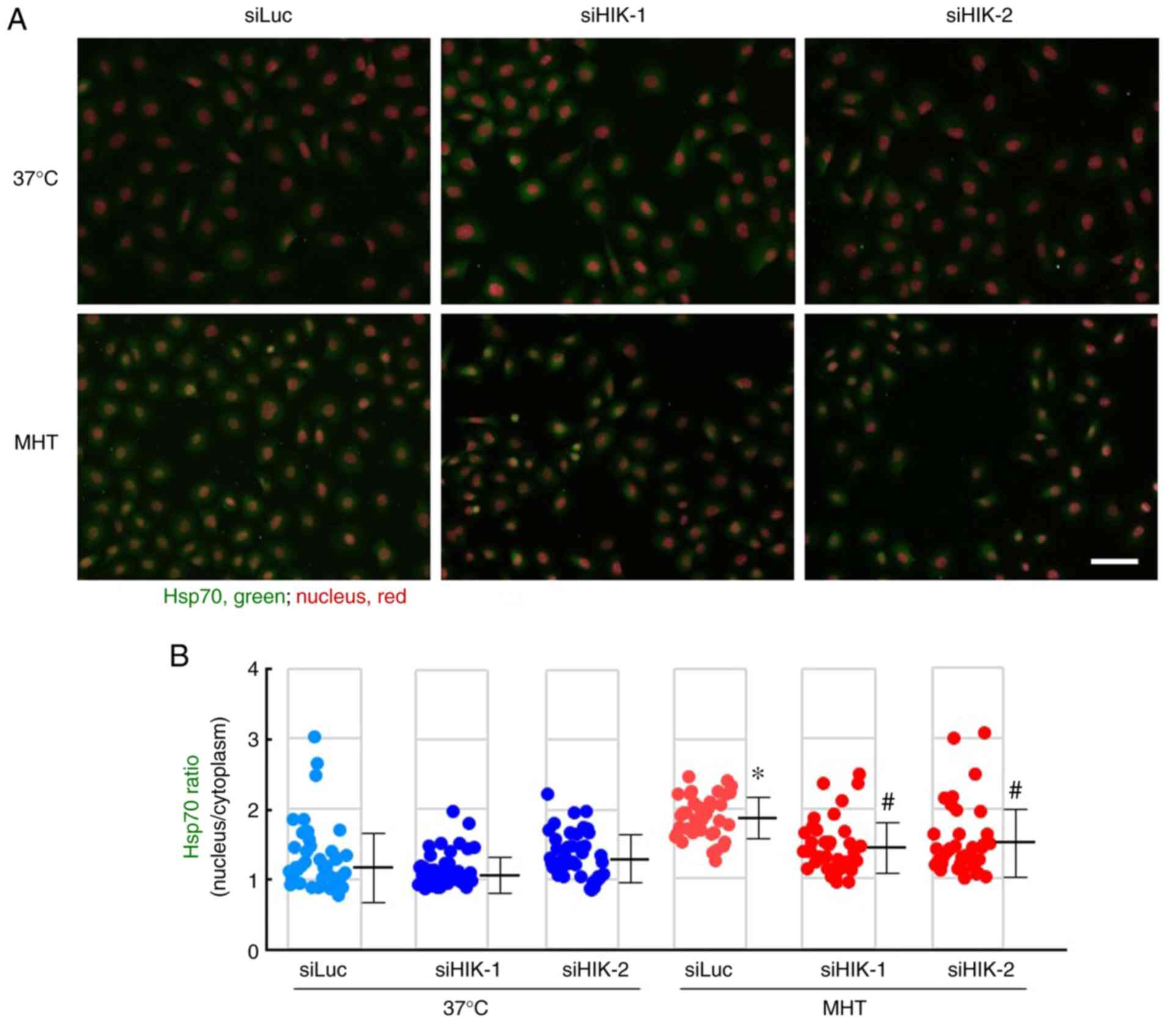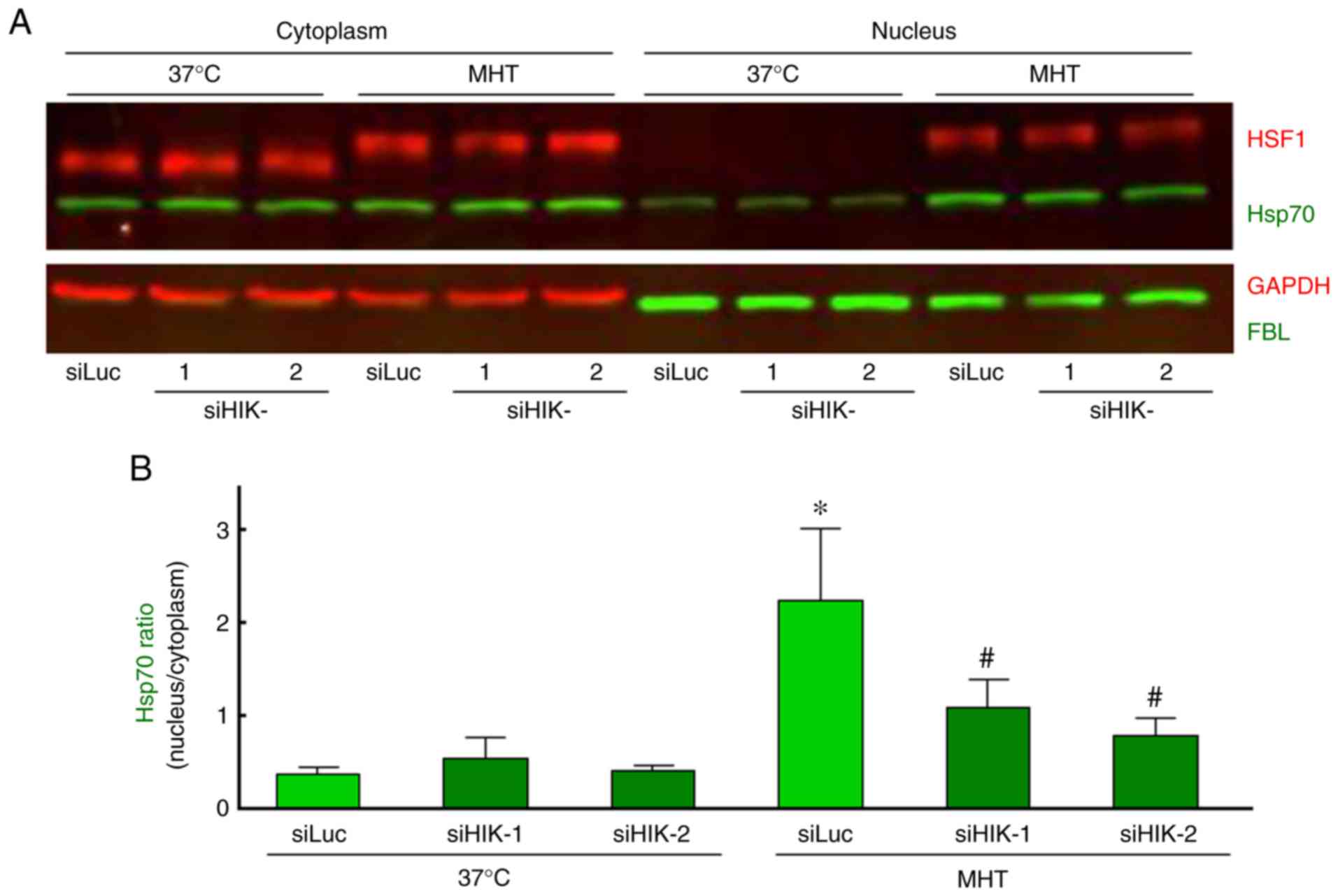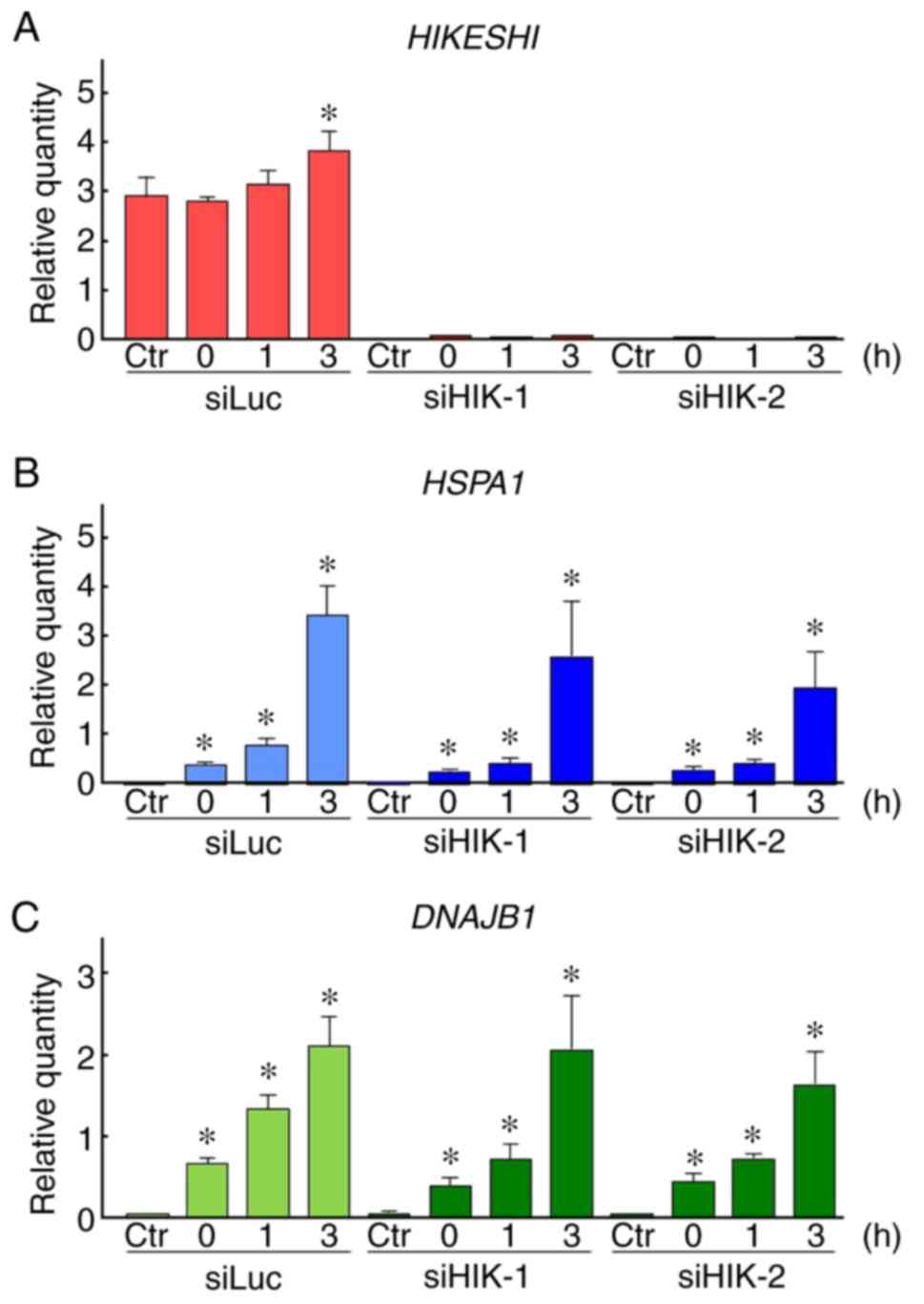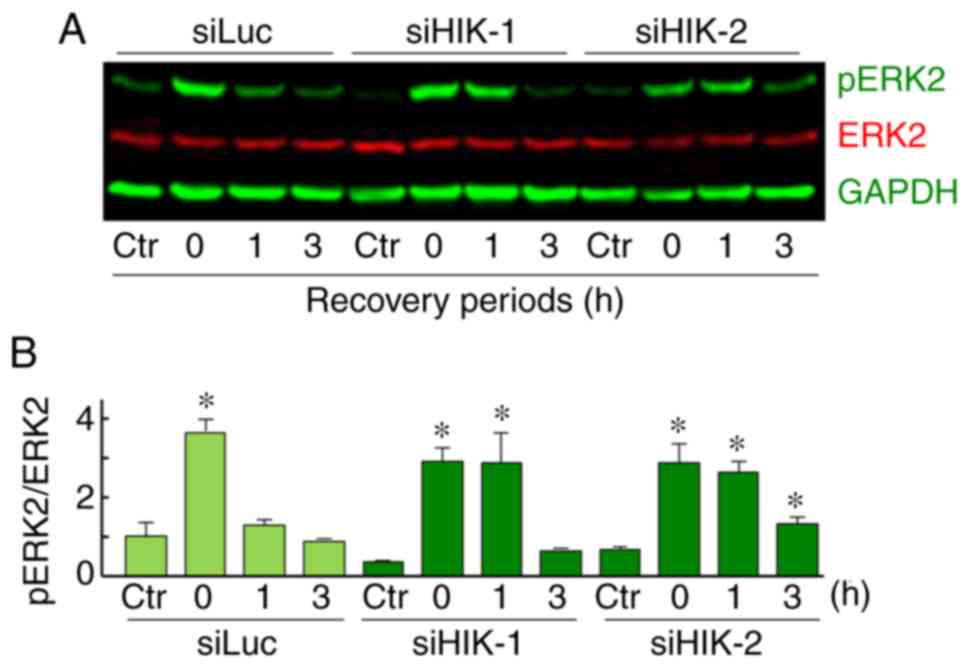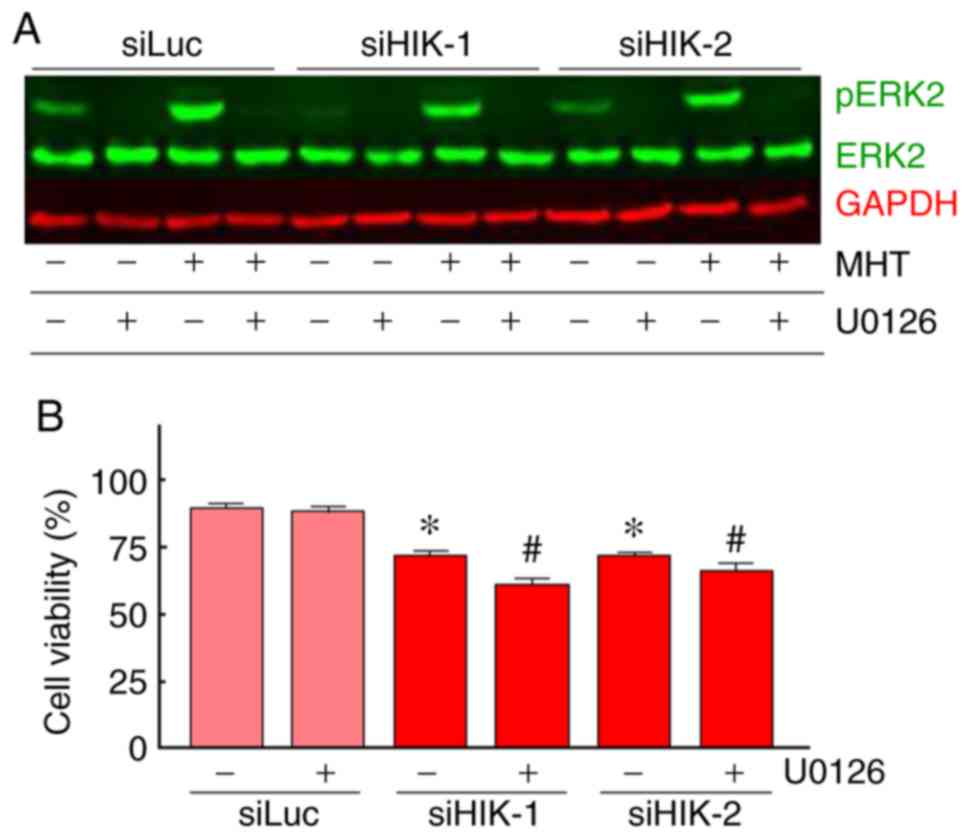|
1
|
van der Zee J, González González D, van
Rhoon GC, van Dijk JD, van Putten WL and Hart AA: Comparison of
radiotherapy alone with radiotherapy plus hyperthermia in locally
advanced pelvic tumours: A prospective, randomised, multicentre
trial. Dutch Deep Hyperthermia Group. Lancet. 355:1119–1125. 2000.
View Article : Google Scholar : PubMed/NCBI
|
|
2
|
Wust P, Hildebrandt B, Sreenivasa G, Rau
B, Gellermann J, Riess H, Felix R and Schlag PM: Hyperthermia in
combined treatment of cancer. Lancet Oncol. 3:487–497. 2002.
View Article : Google Scholar : PubMed/NCBI
|
|
3
|
Issels RD: Hyperthermia adds to
chemotherapy. Eur J Cancer. 44:2546–2554. 2008. View Article : Google Scholar : PubMed/NCBI
|
|
4
|
Zagar TM, Oleson JR, Vujaskovic Z,
Dewhirst MW, Craciunescu OI, Blackwell KL, Prosnitz LR and Jones
EL: Hyperthermia combined with radiation therapy for superficial
breast cancer and chest wall recurrence: A review of the randomised
data. Int J Hyperthermia. 26:612–617. 2010. View Article : Google Scholar : PubMed/NCBI
|
|
5
|
Westermann A, Mella O, Van Der Zee J,
Jones EL, Van Der Steen-Banasik E, Koper P, Uitterhoeve AL, De Wit
R, Van Der Velden J, Burger C, et al: Long-term survival data of
triple modality treatment of stage IIB-III-IVA cervical cancer with
the combination of radiotherapy, chemotherapy and hyper-thermia-an
update. Int J Hyperthermia. 28:549–553. 2012. View Article : Google Scholar
|
|
6
|
Ahmed K, Tabuchi Y and Kondo T:
Hyperthermia: An effective strategy to induce apoptosis in cancer
cells. Apoptosis. 20:1411–1419. 2015. View Article : Google Scholar : PubMed/NCBI
|
|
7
|
Ohguri T, Harima Y, Imada H, Sakurai H,
Ohno T, Hiraki Y, Tuji K, Tanaka M and Terashima H: Relationships
between thermal dose parameters and the efficacy of definitive
chemoradiotherapy plus regional hyperthermia in the treatment of
locally advanced cervical cancer: Data from a multicentre
randomised clinical trial. Int J Hyperthermia. 34:461–468. 2018.
View Article : Google Scholar
|
|
8
|
Bakker A, van der Zee J, van Tienhoven G,
Kok HP, Rasch CRN and Crezee H: Temperature and thermal dose during
radiotherapy and hyperthermia for recurrent breast cancer are
related to clinical outcome and thermal toxicity: A systematic
review. Int J Hyperthermia. 36:1024–1039. 2019. View Article : Google Scholar : PubMed/NCBI
|
|
9
|
Tohnai I, Hayashi Y, Mitsudo K, Shigetomi
T, Ueda M and Ishigaki T: Prognostic evaluation of preoperative
thermochemo-radiotherapy for N(3) cervical lymph node metastases of
oral cancer. Oncology. 62:234–240. 2002. View Article : Google Scholar
|
|
10
|
Nozato T, Koizumi T, Hayashi Y, Iida M,
Iwai T, Oguri S, Hirota M, Kioi M, Koike I, Hata M, et al:
Thermochemora-diotherapy using superselective intra-arterial
infusion for patients with oral cancer with cervical lymph node
metastases. Anticancer Res. 39:1365–1373. 2019. View Article : Google Scholar : PubMed/NCBI
|
|
11
|
Urano M: Kinetics of thermotolerance in
normal and tumor tissues: A review. Cancer Res. 46:474–482.
1986.PubMed/NCBI
|
|
12
|
Sapareto SA: Thermal isoeffect dose:
Addressing the problem of thermotolerance. Int J Hyperthermia.
3:297–305. 1987. View Article : Google Scholar : PubMed/NCBI
|
|
13
|
Overgaard J: The current and potential
role of hyperthermia in radiotherapy. Int J Radiat Oncol Biol Phys.
16:535–549. 1989. View Article : Google Scholar : PubMed/NCBI
|
|
14
|
Li GC, Mivechi NF and Weitzel G: Heat
shock proteins, thermotolerance, and their relevance to clinical
hyperthermia. Int J Hyperthermia. 11:459–488. 1995. View Article : Google Scholar : PubMed/NCBI
|
|
15
|
Li GC and Calderwood SK: Hyperthermia
classic article commentary: 'Re-induction of hsp70 synthesis: An
assay for thermotolerance' by Gloria C. Li and Johnson Y. Mak,
International Journal of Hyperthermia 1989;5:389-403. Int J
Hyperthermia. 25:258–261. 2009. View Article : Google Scholar : PubMed/NCBI
|
|
16
|
Lindquist S and Craig EA: The heat-shock
proteins. Annu Rev Genet. 22:631–677. 1988. View Article : Google Scholar : PubMed/NCBI
|
|
17
|
Ohtsuka K and Hata M: Molecular chaperone
function of mammalian Hsp70 and Hsp40-a review. Int J Hyperthermia.
16:231–245. 2000. View Article : Google Scholar : PubMed/NCBI
|
|
18
|
Hartl FU and Hayer-Hartl M: Molecular
chaperones in the cytosol: From nascent chain to folded protein.
Science. 295:1852–1858. 2002. View Article : Google Scholar : PubMed/NCBI
|
|
19
|
Kregel KC: Heat shock proteins: Modifying
factors in physiological stress responses and acquired
thermotolerance. J Appl Physiol 1985. 92:2177–2186. 2002.
View Article : Google Scholar : PubMed/NCBI
|
|
20
|
Kampinga HH, Hageman J, Vos MJ, Kubota H,
Tanguay RM, Bruford EA, Cheetham ME, Chen B and Hightower LE:
Guidelines for the nomenclature of the human heat shock proteins.
Cell Stress Chaperones. 14:105–111. 2009. View Article : Google Scholar :
|
|
21
|
Akerfelt M, Morimoto RI and Sistonen L:
Heat shock factors: Integrators of cell stress, development and
lifespan. Nat Rev Mol Cell Biol. 11:545–555. 2010. View Article : Google Scholar : PubMed/NCBI
|
|
22
|
Fujimoto M and Nakai A: The heat shock
factor family and adaptation to proteotoxic stress. FEBS J.
277:4112–4125. 2010. View Article : Google Scholar : PubMed/NCBI
|
|
23
|
Calderwood SK and Asea A: Targeting
HSP70-induced thermo-tolerance for design of thermal sensitizers.
Int J Hyperthermia. 18:597–608. 2002. View Article : Google Scholar
|
|
24
|
McMillan DR, Xiao X, Shao L, Graves K and
Benjamin IJ: Targeted disruption of heat shock transcription factor
1 abolishes thermotolerance and protection against heat-inducible
apoptosis. J Biol Chem. 273:7523–7528. 1998. View Article : Google Scholar : PubMed/NCBI
|
|
25
|
Tabuchi Y, Furusawa Y, Wada S, Ohtsuka K
and Kondo T: Silencing heat shock transcription factor 1 using
small interfering RNA enhances mild hyperthermia and hyperthermia
sensitivity in human oral squamous cell carcinoma cells. Thermal
Med. 27:99–108. 2011. View Article : Google Scholar
|
|
26
|
Bettaieb A and Averill-Bates DA:
Thermotolerance induced at a mild temperature of 40°C alleviates
heat shock-induced ER stress and apoptosis in HeLa cells. Biochim
Biophys Acta. 1853:52–62. 2015. View Article : Google Scholar
|
|
27
|
Matozaki M, Saito Y, Yasutake R, Munira S,
Kaibori Y, Yukawa A, Tada M and Nakayama Y: Involvement of Stat3
phosphorylation in mild heat shock-induced thermotolerance. Exp
Cell Res. 377:67–74. 2019. View Article : Google Scholar : PubMed/NCBI
|
|
28
|
Pelham HR: Hsp70 accelerates the recovery
of nucleolar morphology after heat shock. EMBO J. 3:3095–3100.
1984. View Article : Google Scholar : PubMed/NCBI
|
|
29
|
Welch WJ and Feramisco JR: Nuclear and
nucleolar localization of the 72,000-dalton heat shock protein in
heat-shocked mammalian cells. J Biol Chem. 259:4501–4513.
1984.PubMed/NCBI
|
|
30
|
Kose S, Furuta M and Imamoto N: Hikeshi, a
nuclear import carrier for Hsp70s, protects cells from heat
shock-induced nuclear damage. Cell. 149:578–589. 2012. View Article : Google Scholar : PubMed/NCBI
|
|
31
|
Rahman KMZ, Mamada H, Takagi M, Kose S and
Imamoto N: Hikeshi modulates the proteotoxic stress response in
human cells: Implication for the importance of the nuclear function
of HSP70s. Genes Cells. 22:968–976. 2017. View Article : Google Scholar : PubMed/NCBI
|
|
32
|
Yanoma T, Ogata K, Yokobori T, Ide M,
Mochiki E, Toyomasu Y, Yanai M, Kogure N, Kimura A, Suzuki M, et
al: Heat shock-induced HIKESHI protects cell viability via nuclear
translocation of heat shock protein 70. Oncol Rep. 38:1500–1506.
2017. View Article : Google Scholar : PubMed/NCBI
|
|
33
|
Bhalla S, Chaudhary K, Kumar R, Sehgal M,
Kaur H, Sharma S and Raghava GP: Gene expression-based biomarkers
for discriminating early and late stage of clear cell renal cancer.
Sci Rep. 7:449972017. View Article : Google Scholar : PubMed/NCBI
|
|
34
|
Tabuchi Y, Wada S, Furusawa Y, Ohtsuka K
and Kondo T: Gene networks related to the cell death elicited by
hyperthermia in human oral squamous cell carcinoma HSC-3 cells. Int
J Mol Med. 29:380–386. 2012.
|
|
35
|
Yunoki T, Kariya A, Kondo T, Hayashi A and
Tabuchi Y: The combination of silencing BAG3 and inhibition of the
JNK pathway enhances hyperthermia sensitivity in human oral
squamous cell carcinoma cells. Cancer Lett. 335:52–57. 2013.
View Article : Google Scholar : PubMed/NCBI
|
|
36
|
Yunoki T, Tabuchi Y, Hayashi A and Kondo
T: Network analysis of genes involved in the enhancement of
hyperthermia sensitivity by the knockdown of BAG3 in human oral
squamous cell carcinoma cells. Int J Mol Med. 38:236–242. 2016.
View Article : Google Scholar : PubMed/NCBI
|
|
37
|
Suzuki K, Bose P, Leong-Quong RY, Fujita
DJ and Riabowol K: REAP: A two minute cell fractionation method.
BMC Res Notes. 3:2942010. View Article : Google Scholar : PubMed/NCBI
|
|
38
|
Chang KL, Wong LR, Pee HN, Yang S and Ho
PC: Reverting metabolic dysfunction in cortex and cerebellum of
APP/PS1 mice, a model for Alzheimer's disease by pioglitazone, a
peroxi-some proliferator-activated receptor gamma (PPARγ) agonist.
Mol Neurobiol. 56:7267–7283. 2019. View Article : Google Scholar : PubMed/NCBI
|
|
39
|
Yap K, Mukhina S, Zhang G, Tan JSC, Ong HS
and Makeyev EV: A short tandem repeat-enriched RNA assembles a
nuclear compartment to control alternative splicing and promote
cell survival. Mol Cell. 72:525–540.e13. 2018. View Article : Google Scholar : PubMed/NCBI
|
|
40
|
Furusawa Y, Yunoki T, Hirano T, Minagawa
S, Izumi H, Mori H, Hayashi A and Tabuchi Y: Identification of
genes and genetic networks associated with BAG3-dependent cell
proliferation and cell survival in human cervical cancer HeLa
cells. Mol Med Rep. 18:4138–4146. 2018.PubMed/NCBI
|
|
41
|
Hirano T, Minagawa S, Furusawa Y, Yunoki
T, Ikenaka Y, Yokoyama T, Hoshi N and Tabuchi Y: Growth and neurite
stimulating effects of the neonicotinoid pesticide clothianidin on
human neuroblastoma SH-SY5Y cells. Toxicol Appl Pharmacol.
383:1147772019. View Article : Google Scholar : PubMed/NCBI
|
|
42
|
Sarge KD, Murphy SP and Morimoto RI:
Activation of heat shock gene transcription by heat shock factor 1
involves oligomerization, acquisition of DNA-binding activity, and
nuclear localization and can occur in the absence of stress. Mol
Cell Biol. 13:1392–1407. 1993. View Article : Google Scholar : PubMed/NCBI
|
|
43
|
Todryk SM, Gough MJ and Pockley AG: Facets
of heat shock protein 70 show immunotherapeutic potential.
Immunology. 110:1–9. 2003. View Article : Google Scholar : PubMed/NCBI
|
|
44
|
Ito A, Honda H and Kobayashi T: Cancer
immunotherapy based on intracellular hyperthermia using magnetite
nanoparticles: A novel concept of 'heat-controlled necrosis' with
heat shock protein expression. Cancer Immunol Immunother.
55:320–328. 2006. View Article : Google Scholar
|
|
45
|
Deschênes-Simard X, Kottakis F, Meloche S
and Ferbeyre G: ERKs in cancer: Friends or foes? Cancer Res.
74:412–419. 2014. View Article : Google Scholar : PubMed/NCBI
|
|
46
|
Chen F, Rezavi R, Wang CC and Harrison LE:
Proteasome inhibition potentiates the cytotoxic effects of
hyperthermia in HT-29 colon cancer cells through inhibition of heat
shock protein 27. Oncology. 73:98–103. 2007. View Article : Google Scholar
|
|
47
|
Yunoki T, Tabuchi Y, Hayashi A and Kondo
T: BAG3 protects against hyperthermic stress by modulating NF-κB
and ERK activities in human retinoblastoma cells. Graefes Arch Clin
Exp Ophthalmol. 253:399–407. 2015. View Article : Google Scholar
|
|
48
|
Czubryt MP, Austria JA and Pierce GN:
Hydrogen peroxide inhibition of nuclear protein import is mediated
by the mitogen-activated protein kinase, ERK2. J Cell Biol.
148:7–16. 2000. View Article : Google Scholar : PubMed/NCBI
|
|
49
|
Kosako H, Yamaguchi N, Aranami C, Ushiyama
M, Kose S, Imamoto N, Taniguchi H, Nishida E and Hattori S:
Phosphoproteomics reveals new ERK MAP kinase targets and links ERK
to nucleoporin-mediated nuclear transport. Nat Struct Mol Biol.
16:1026–1035. 2009. View Article : Google Scholar : PubMed/NCBI
|















